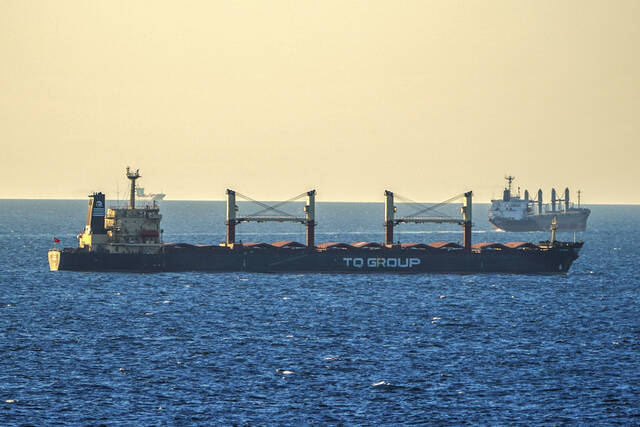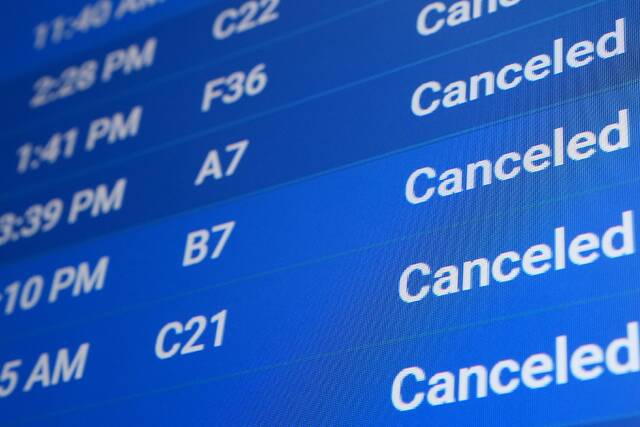In the latest escalation of his war crimes against Ukraine, Russian President Vladimir Putin has pulled out of the painfully negotiated grain deal that for months has permitted exports of Ukrainian and Russian agricultural products from Black Sea ports.
There are several reasons for Putin’s withdrawal: frustration at Western sanctions; concern over Ukraine’s modestly successful counteroffensive; and anger at the Ukrainians’ bold strike on the symbolically and logistically important Kerch Strait bridge that connects Russia to occupied Crimea.
In addition to ending Russian participation in the grain deal, — which was brokered with the aid of the United Nations and Turkey — Putin said he may begin attacking grain ships still plying the international waters of the Black Sea. This will make it very difficult, if not impossible, for shippers of grain and other agricultural products to obtain insurance — effectively creating a blockade.
How can the West respond to Putin’s actions? And what might he do in return?
For starters, the U.S. can learn from its own history. More than 30 years ago, then-Lt. Cmdr. James Stavridis (with a lot more hair) was assigned as operations officer on a new U.S. Navy Aegis cruiser, the Valley Forge. We were part of Operation Earnest Will, which helped resolve an Iranian attempt to close the Strait of Hormuz and thus cut off 25% of the world’s hydrocarbon shipping.
That successful mission provides a rough blueprint of how to break an illegal blockade today.
In the Gulf in the late 1980s, Washington took the extraordinary step of “re-flagging” Kuwaiti oil tankers — putting them under American registration — to make them, in essence, U.S. assets. We then set up a complex command-and-control system across the waters of the Gulf and — to use a basketball analogy — provided both zone and man-to-man defense arrangements: generally moving the ships in convoys, but occasionally assigning individual warships to protect individual tankers, depending on the situation.
Fast-forward to the present. On the plus side, because of the humanitarian nature of the cargoes, it might not be necessary to fully re-flag the Black Sea vessels. The rationale for the escorts would essentially fall under the broad provisions of international law that permit enforcing the freedom of international waters, and also allow the protection of humanitarian shipping in conflict zones.
Operationally, a structure along the lines of Earnest Will makes sense. Assuming this is a NATO mission, the main assets would be two standing maritime combat groups overseen by my latest successor as the alliance’s supreme allied commander, U.S. Army General Chris Cavoli. He would probably delegate execution to the four-star commander of NATO’s southern forces, based in Naples, Italy.
Fortuitously, one of the standing maritime groups is composed of minesweepers, which will be very necessary given Russia’s continued laying of sea mines near Ukraine’s ports. The other maritime group, currently under the command of a British commodore, is typically composed of six frigates and destroyers, with plenty of firepower and air-defense capability. Likely, the HQ in Naples would install a three-star commander for the task force as a whole, possibly from the U.S. Sixth Fleet in the Mediterranean.
How would it work? Probably by bundling the merchant craft into three-to-five-ship convoys, each escorted by a couple of guided-missile warships. There would be a significant air component to carry out patrols tracking the location of the Russian Black Sea Fleet — which operates largely out of ports in occupied Crimea — and to respond to possible Russian air attacks on the ships. Several squadrons of fighters could be assigned to NATO bases in northern Turkey or, more likely, Romania and Bulgaria. Satellite command-and-control would be necessary; air and naval drones could be integrated.
Putin would fume, sputter and threaten but is unlikely to take on NATO or a U.S.-led coalition of Black Sea warships in direct combat. He would be well served to see how things turned out for Iran in the 1980s: multiple warships sunk, and a broken blockade.
Convoys, anyone?








